10 Lifestyle Changes to Implement If You Want to Avoid Burnout at Work : Money makes the world go ’round. Without it, survival is incredibly difficult. We need money to help supply us with shelter, food, medical care, and other necessities we need to stay safe and healthy.
Although bringing home money is important, it’s not always enough to keep us motivated to stay at our current place of work. In fact, one in five highly-engaged employees is prone to burnout. Burnout involves both physical and mental health problems including depression, fatigue, anxiety, frequent illness, apathy, recurring headaches, muscle pain, and lack of motivation.
Burnout isn’t the same thing as stress. Stress is common and inevitable, especially in the workplace, while burnout goes beyond stress, often resulting in more severe symptoms, yet can be avoided.
Due to the fact that burnout can lead to drastic health symptoms and is correlated with loss of productivity on the job and may even lead an employee to resign from their current position, burnout is incredibly important to avoid. Learning about the most common burnout causes and implementing the following tips can help employees avoid burnout as much as possible before it kicks in.
-
Get plenty of sleep each night.
While it’s easier said than done for some folks, getting enough sleep every night is critical when it comes to banishing burnout at work. Ever take a nap after a stressful day of work and find that your stress is lower when you wake up? If so, you know what the power of getting enough sleep can do in times of emotional distress and mental havoc.
With that being said, it makes sense why it’s important to ensure you get enough sleep each night. Both the hours and the quality of sleep you receive are critical to maintaining a happier, clearer, less stressed mind.
If you find it difficult to fall asleep, try napping after work or speaking with a doctor about ways to combat insomnia and other sleep problems you’re experiencing. Getting enough sleep is important for reasons beyond stress management.
-
Start saying no.
As much as most of us hate saying it and worry that saying it will cause us to lose our jobs, saying no to certain work-related tasks is critical. Learning to say no can help you establish authority over your work-life balance, which in turn can help you get a better grip over the stress associated with your career.
While it’s not always possible to say no, some things you should be avoiding or minimizing, include checking your work email after hours or while on vacation, agreeing to come into work voluntarily for extra pay, accepting a new position that has more responsibilities that you aren’t ready to take on, and working overtime when you don’t have to.
-
Refrain from skipping meals.
When under a lot of stress, or keeping extra busy with work, it’s easy to lose your appetite or even forget to eat. However, everyone knows how cranky most people get when they haven’t had a bite to eat in a while. The longer one goes without the proper nutrition, the more physical and mental health symptoms may come on.
No matter how busy or stressed you are with work, it’s imperative to always eat well-balanced meals to fill your body with the fuel it needs to not only stay energized but to stay in a clearer state of mind. Remember: nutrition plays a pivotal role in emotional health, memory, and cognition, which can otherwise be hampered by stress, anxiety, and workplace burnout.
-
Start a regular workout routine.
Want to get healthy physically and mentally? Engaging in a regular workout routine is one of the best ways to kick stress and burnout to the curb. By staying physically fit, you’re able to get rid of excess stress hormones that would otherwise lead to weight gain, digestive issues, chronic pain, and other debilitating symptoms.
Apart from everyday stress, regular exercise has been found to eliminate anxiety, depression, and emotional or mental trauma as physical activity helps get the nervous system moving again, aiding it on its path to self healing. Whether it’s swimming several laps a few times a week or jogging a mile a day, keeping yourself active is a great way to avoid or reduce burnout.
-
Self-employed? Create set work hours.
When you’re employed by someone else, it can be challenging when it comes to setting your own hours. Meanwhile, someone who’s self-employed typically has the luxury of selecting the days and times that they’ll be working. Yet, many business owners work longer shifts than your average employee.
No matter how much you love to work and how passionate you are about what you do, setting specific work hours is critical. It’s not humane to be working 15-hour days seven days a week, that is, unless you enjoy mental and physical exhaustion and lack of time for yourself. Giving yourself more breaks and time off can actually make your quality of work better in the long run.
-
Keep your work desk organized.
Working in a cluttered space alone can cause stress, cognitive dysfunction, lack of productivity, and disengagement on the job. There’s nothing more mentally exhausting than having to constantly shuffle through stacks of messy paperwork, cluttered cabinets, and out-of-place supplies.
In fact, research shows that based on MRI scans, the brain prefers a clean and orderly space. Physical disorganization has been found to deplete our focus and have a negative effect on how we process information. However, the opposite is true when we’re working in an organized space.
If you’re feeling frazzled on the job, chances are, your work desk, office, workshop, room, or what have you needs to be reorganized. Keep in might that organization isn’t just about keeping things orderly and neat but also knowing where everything is and ensuring things are kept in a logical, convenient place.
-
Listen to your body.
One of the worst things anyone could do in a time of stress is ignore what their body is trying to communicate to them. By failing to listen to your mental or physical body, you’re setting yourself up for further stress, which can eventually turn into full-blown workplace burnout.
Strained eyes after working at a computer screen for 12 hours straight? Turn down the brightness on your screen, or take a break. Feeling un-stimulated while at work? Ask your boss for more challenging work, or search for a job that’s more energizing for you. Finding yourself dealing with hunger headaches multiple times throughout the work day? Bring snacks to work.
Ignoring the needs of your body can be a mistake that only after awhile you’ll regret. In the beginning, letting your body’s basic necessities slide isn’t a big deal, that is, until you soon find yourself at the point of exhaustion and in a state of burnout.
-
Don’t forget to have fun.
Having fun is one of the best and quickest ways to eliminate stress from your life, which makes sense because having fun and being stressed out are virtually on the opposite sides of the spectrum. Physically, mentally, and emotionally, stress can be draining and burdensome while having fun is stimulating and exciting.
For the latter reason, it’s a good idea to upkeep the fun in your life. Making sure you have fun during your free time doesn’t have to be expensive. Things like reading a magazine, scrolling through social media during your breaks, keeping up with your favorite television series, and playing with your puppy more often are all ways to bring joy and simplicity into your hectic life.
-
Take vacation time off work.
We all need a break, and sometimes a 30-minute lunch break each day of work and two days off work a week just won’t suffice. Guess what? That’s okay! Taking vacation time off work, even for a day or few, can help you distress as you focus on less professional matters. In some cases, being away from work can even give you time to miss it and want to go back.
During your time off, strive to do something fun, especially if it’s something you haven’t done in a while or if it’s something you’ve been want to try. It can be as simple as watching movies all day or engaging in an activity as adventurous as rock-climbing or zip-lining.
-
Get counseling.
If you’re already at the point of extreme stress or workplace burnout, it’s critical to get the professional help you need to recover. This is especially true if you’re experiencing lack of motivation, hopelessness, depression, suicidal thoughts, or other symptoms you feel you need professional help to overcome.
Talking with counseling about the problems you’re experiencing, whether they’re directly related to work or merely have to do with the symptoms you’re dealing with as a result of workplace stress or burnout, can help you find ways to deal with your struggles in a healthy manner.
Conclusion
The second stress kicks in, it’s critical that employees begin engaging in some of the latter things to prevent possible workplace burnout. By avoiding burnout, employees can maintain a happier, more productive, and more successful career, benefiting both them personally as well as their employer and the customers or clients they work with.
Related Infographics about Lifestyle Changes to Implement If You Want to Avoid Burnout at Work :
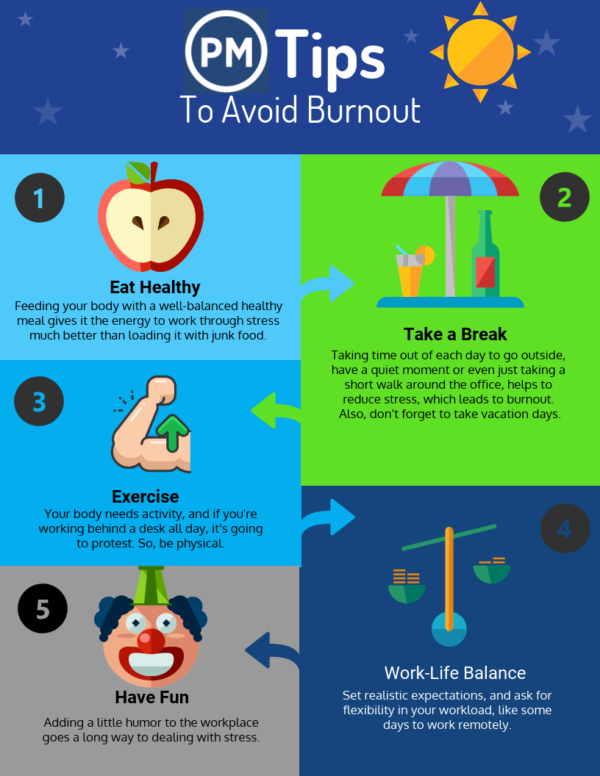
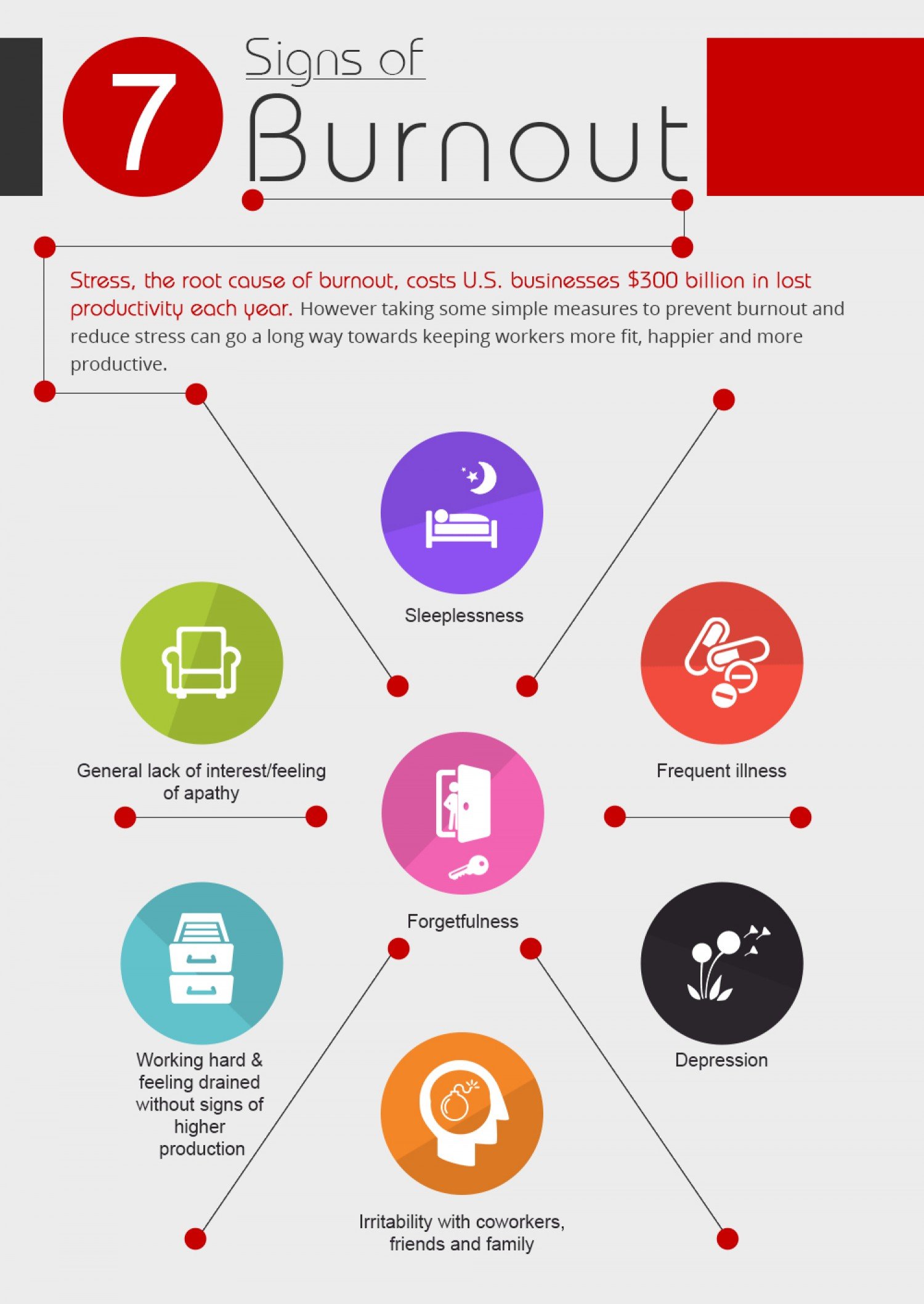
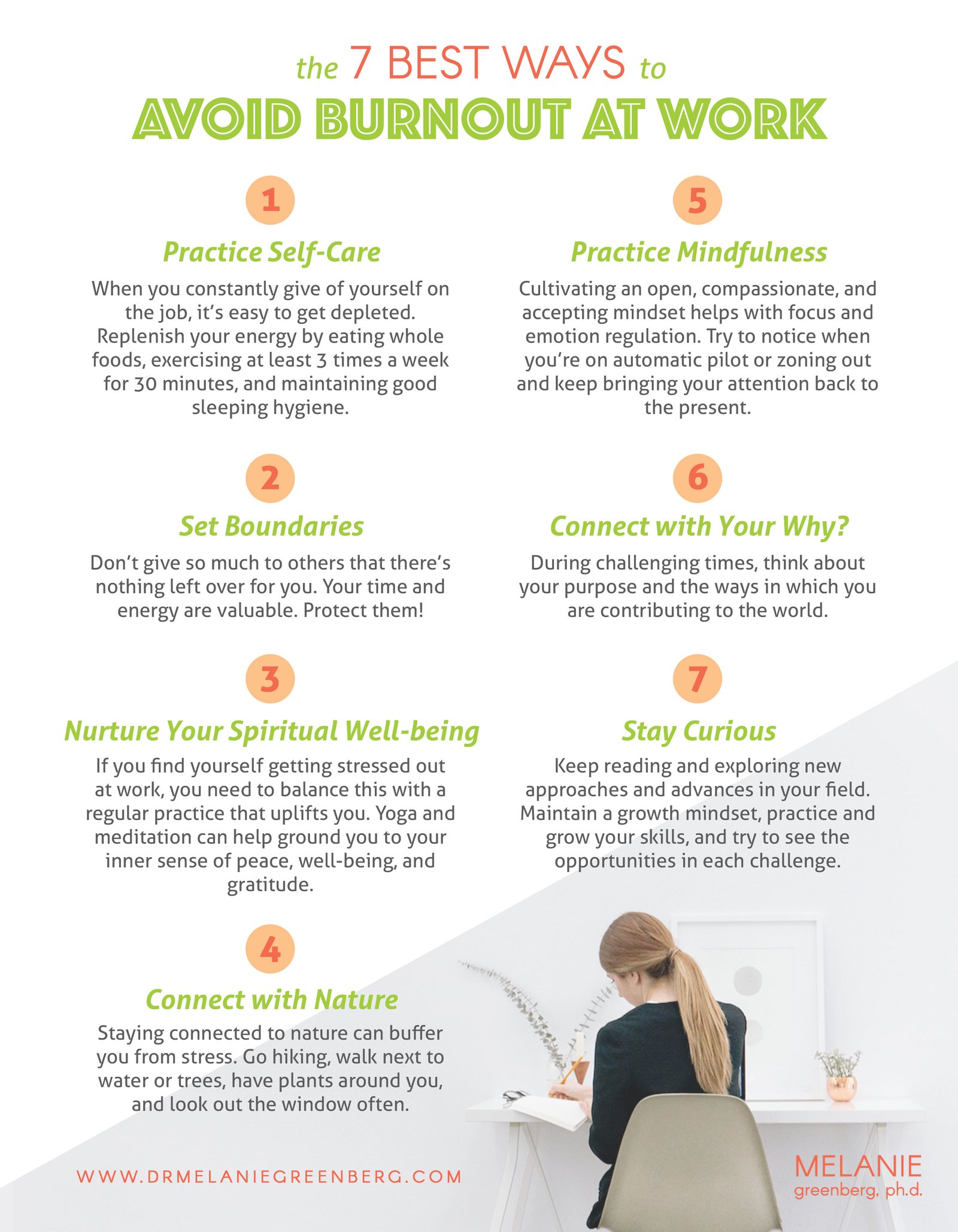
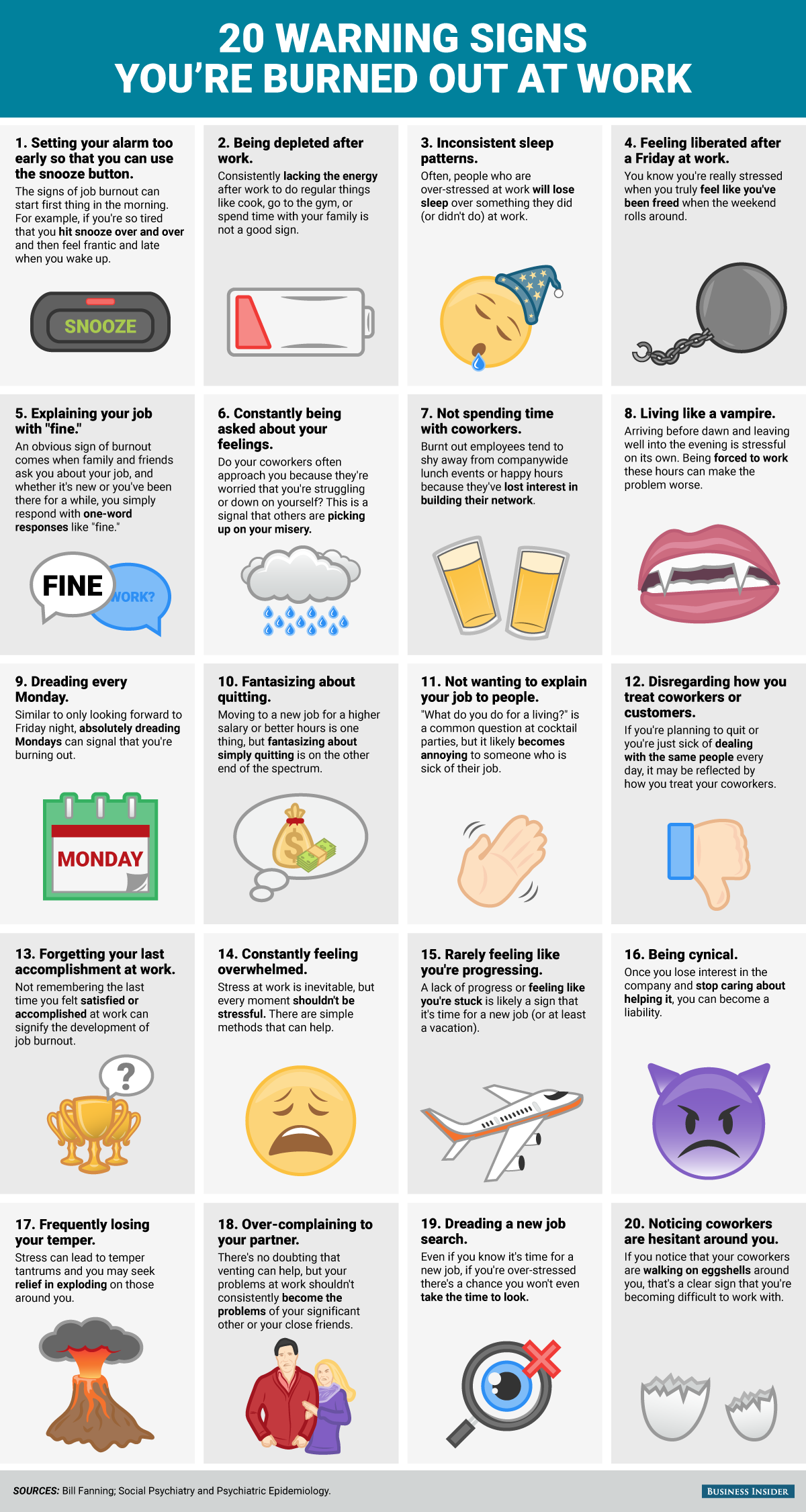



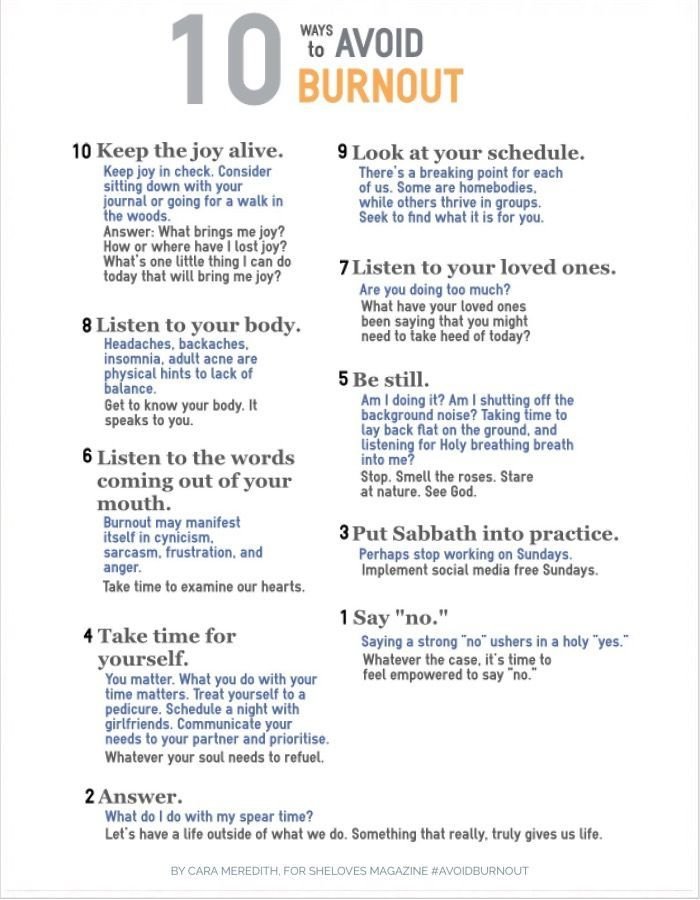
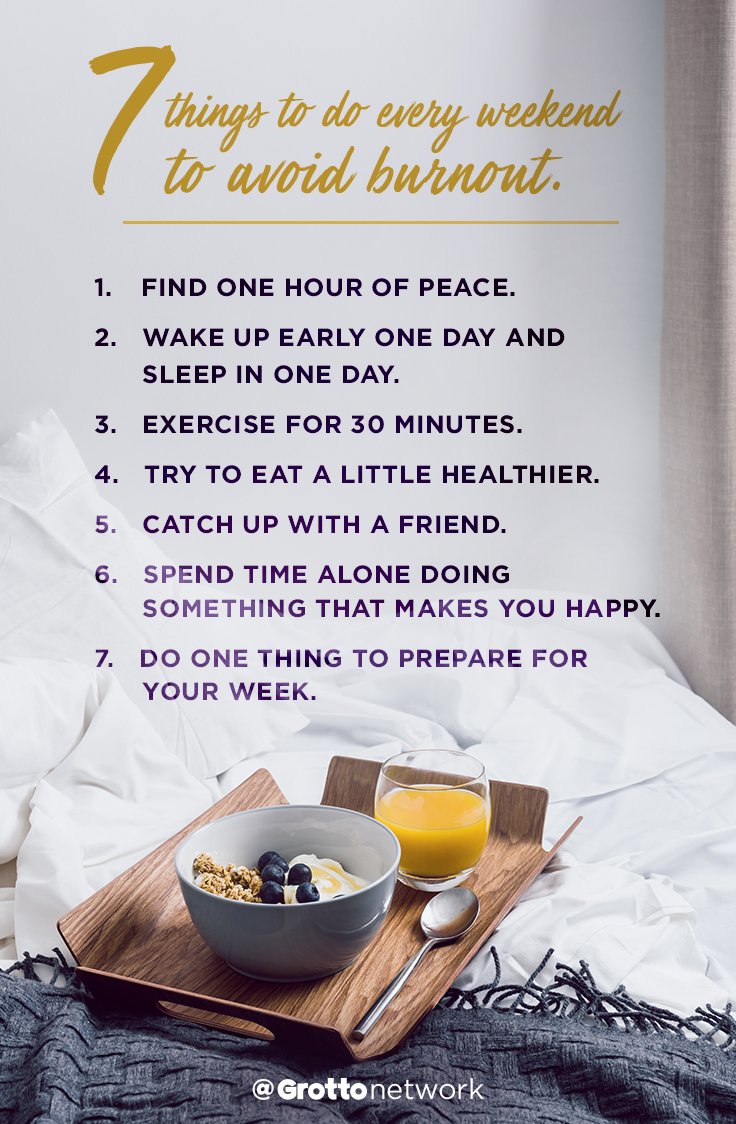
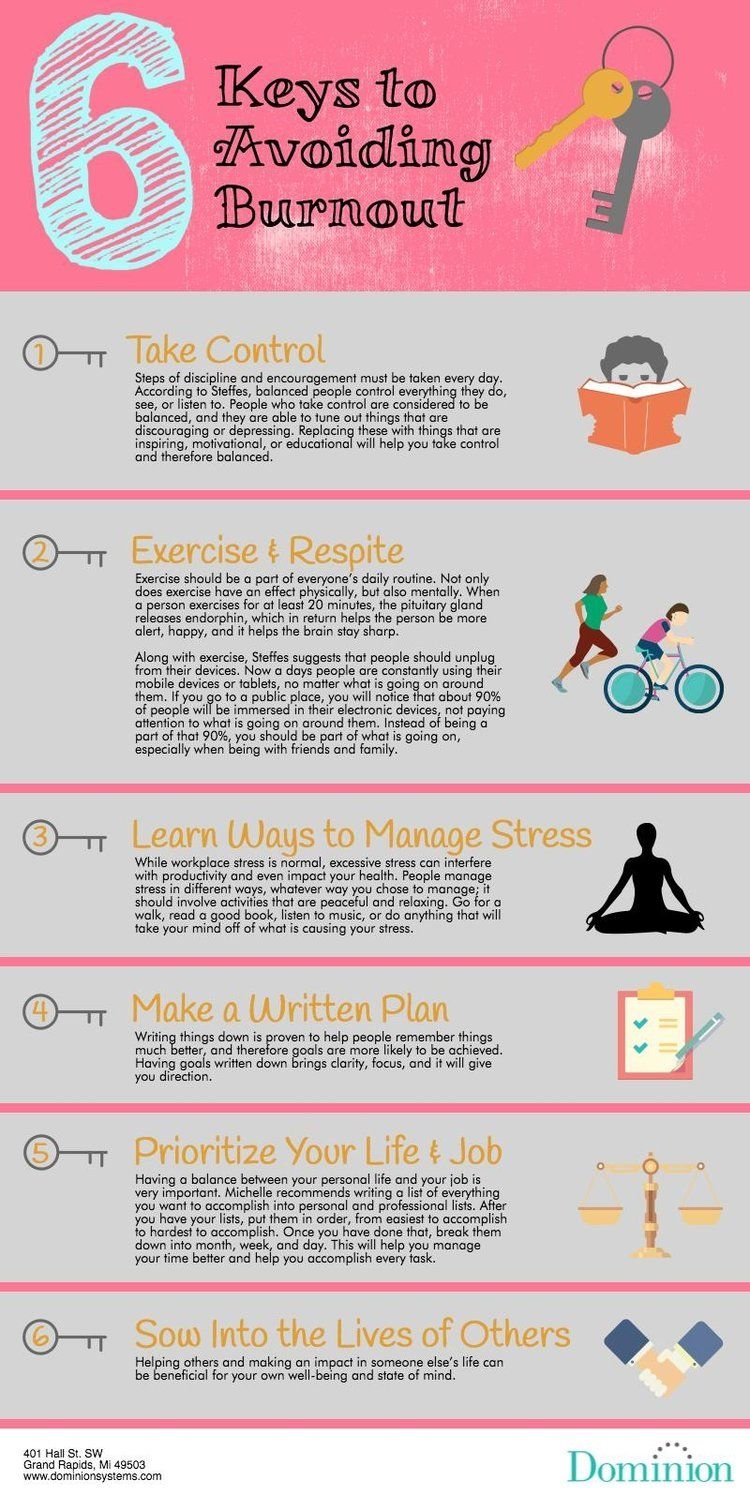
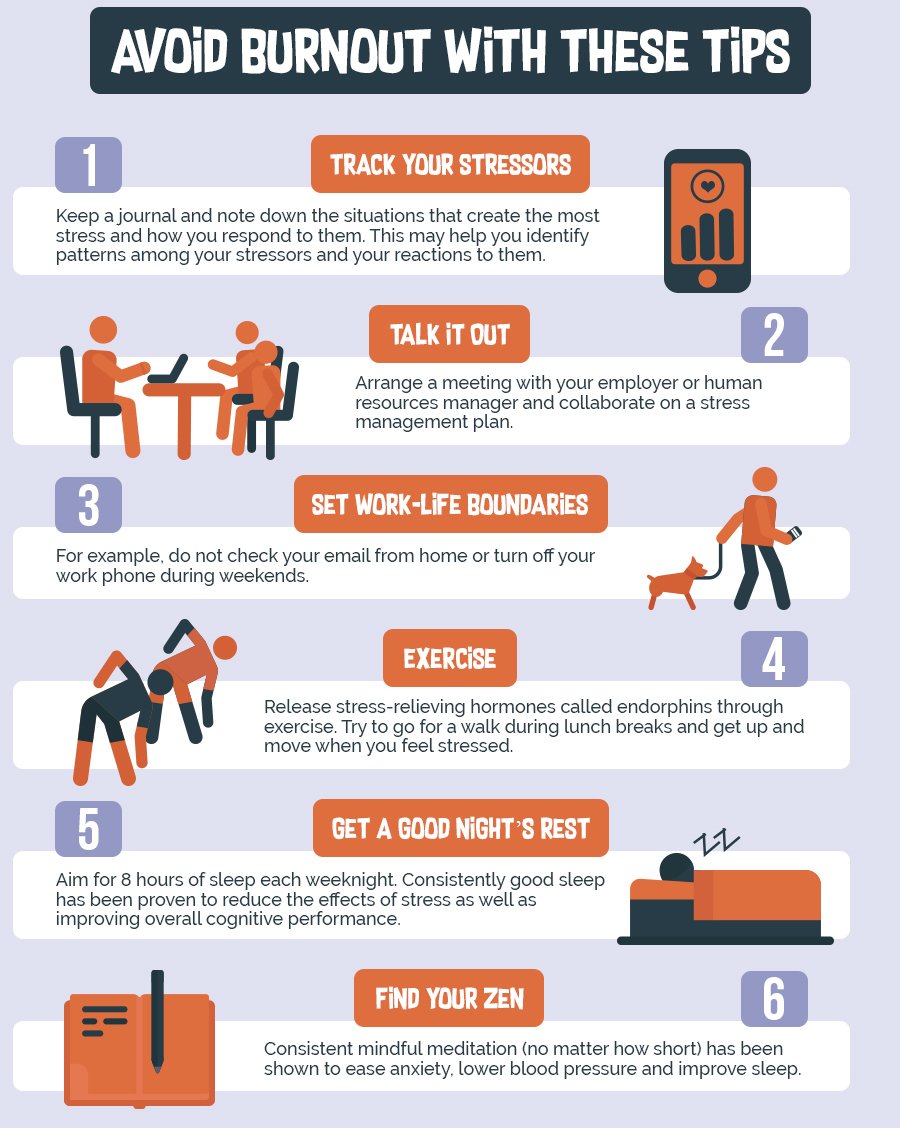
Related Videos about Lifestyle Changes to Implement If You Want to Avoid Burnout at Work :
Occupational Burnout: When Work Becomes Overwhelming
How to Avoid Burnout
Resiliency Training for Physicians: How to Manage Stress and Avoid Burnout
Five Simple Ways To Avoid Burnout
Burnout – Causes, symptoms and treatment
Management tutorial: Avoiding burnout at work
How to Avoid Burnout at Work
10 Lifestyle Changes to Implement If You Want to Avoid Burnout at Work
how to avoid burnout in college, managing burnout in the workplace, how to avoid burnout and thrive at work, how to avoid burnout in healthcare, how to avoid burnout reddit, what is burnout, how to prevent burnout in nursing, ow to avoid burnout in sport,




